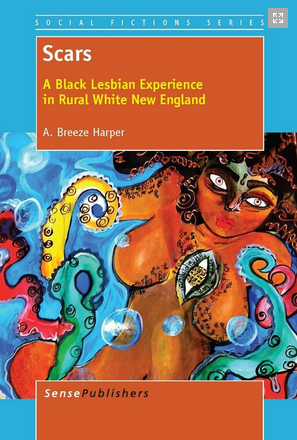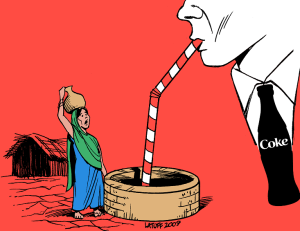
Why Animality Matters
In Ko & Ko’s 2017 publication Aphro-ism, the sisters critique popular applications of intersectionality theory, identifying that what has traditionally been defined as “human” has always been categorized as white, male, and European, while racial and ethnic minorities, women, and other marginalized groups have been dualistically constructed as “animal.” Thus, “animal” is not so much a catch-all category meant to refer to nonhuman species, but to all manner of disenfranchised groups, humans included.
Animality is, they insist, endemic to the colonialist project, providing justification for social control and suppression. The Kos argue that anti-racism activists, feminists, and vegans all have a stake in challenging the false divide between human and animal, and, more specifically, challenging the category of “animal” itself.
Without challenging this basic mechanism of oppression, activists are bound to fail in their efforts for liberation. In fact, they merely embrace the same oppressive logic by either ignoring (or rejecting) the relevance of animality or insisting that intersectionality praxis stop short of species solidarity. Doing so dangerously preserves hierarchies. As Aph warns: “What hasn’t occurred to many of us is that this model of compartmentalizing oppressions tracks the problematic Eurocentric compartmentalization of the world and its members in general” (71).
Why Race Matters
From the same reasoning, vegans who do not incorporate a critical racial lens are missing the entire point of speciesism: marking particular bodies as distinct from the dominant group based on perceived physical, cognitive, and cultural differences, and then employing this distinction to rationalize oppressive treatment. Racism and speciesism are inherently entangled. Explains Syl: “[ . . . ] the organizing principle for racial logic lies in the human-animal divide, wherein the human and the animal are understood to be moral opposites” (66).
The Kos are careful not to prescribe a “we are all animals” perspective to solve this boundary-maintenance, as this is poised to deprecate rather than accommodate difference. There is little need to push for sameness, and such a push usually maintains the dominant group as the standard to which others should aspire.
Read more of my review of Aprho-ism: Essays on Pop Culture, Feminism, and Black Veganism from Two Sisters in Society & Animals here.
 Dr. Wrenn is Lecturer of Sociology. She received her Ph.D. in Sociology with Colorado State University in 2016. She received her M.S. in Sociology in 2008 and her B.A. in Political Science in 2005, both from Virginia Tech. She was awarded Exemplary Diversity Scholar, 2016 by the University of Michigan’s National Center for Institutional Diversity. She served as council member with the American Sociological Association’s Animals & Society section (2013-2016) and was elected Chair in 2018. She serves as Book Review Editor to Society & Animals and has contributed to the Human-Animal Studies Images and Cinema blogs for the Animals and Society Institute. She has been published in several peer-reviewed academic journals including the Journal of Gender Studies, Feminist Media Studies, Disability & Society, Food, Culture & Society, and Society & Animals. In July 2013, she founded the Vegan Feminist Network, an academic-activist project engaging intersectional social justice praxis. She is the author of A Rational Approach to Animal Rights: Extensions in Abolitionist Theory (Palgrave MacMillan 2016).
Dr. Wrenn is Lecturer of Sociology. She received her Ph.D. in Sociology with Colorado State University in 2016. She received her M.S. in Sociology in 2008 and her B.A. in Political Science in 2005, both from Virginia Tech. She was awarded Exemplary Diversity Scholar, 2016 by the University of Michigan’s National Center for Institutional Diversity. She served as council member with the American Sociological Association’s Animals & Society section (2013-2016) and was elected Chair in 2018. She serves as Book Review Editor to Society & Animals and has contributed to the Human-Animal Studies Images and Cinema blogs for the Animals and Society Institute. She has been published in several peer-reviewed academic journals including the Journal of Gender Studies, Feminist Media Studies, Disability & Society, Food, Culture & Society, and Society & Animals. In July 2013, she founded the Vegan Feminist Network, an academic-activist project engaging intersectional social justice praxis. She is the author of A Rational Approach to Animal Rights: Extensions in Abolitionist Theory (Palgrave MacMillan 2016).
Receive research updates straight to your inbox by subscribing to my newsletter.



 I recently had the pleasure of reading Dr. Breeze Harper’s new fiction publication,
I recently had the pleasure of reading Dr. Breeze Harper’s new fiction publication,
